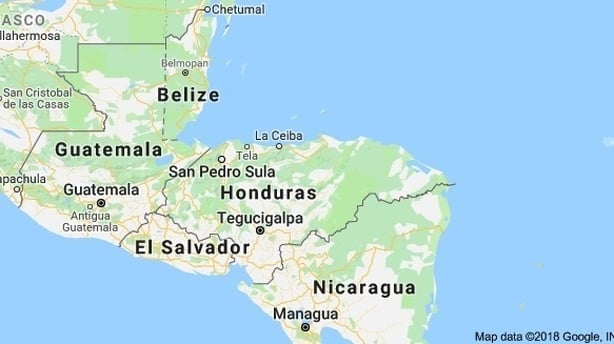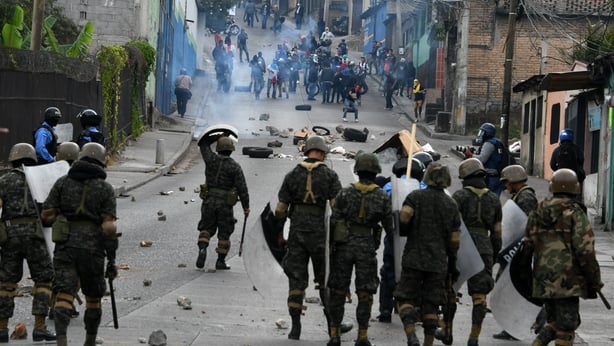Honduras is ranked as the most dangerous country in the world to be an environmental defender. At least 123 land and environmental activists have been murdered in Honduras since a military coup d'état in 2009. Here is just one story.
Consuelo lives under the shadow of a death threat. She knows that at any moment, gunmen may arrive and murder her.
They may be the same gunmen who killed her husband, Luis, three years ago.
Consuelo’s life is in danger because of her work defending her community. In Honduras, standing up in defence of poor communities is all it takes to end up in an early grave.

Honduras is ranked as the most dangerous country in the world to be an environmental defender. At least 123 land and environmental activists have been murdered in Honduras since a military coup d’état in 2009.
A Global Witness report accused high-ranking politicians and business tycoons of being implicated in violence. The report stated that many of the victims were members of indigenous groups who were opposed to mega-projects being constructed on their territories.
We need your consent to load this rte-player contentWe use rte-player to manage extra content that can set cookies on your device and collect data about your activity. Please review their details and accept them to load the content.Manage Preferences
RTÉ Prime Time report from Honduras on The Palm Oil Battle in 2011
Indigenous communities who fight for access to land, or who oppose major infrastructural projects, are often subjected to violence and intimidation.
Since 2002, Consuelo has been fighting to secure the right to land for her community. Initially, they attempted to silence her with money. She was offered up to €2,000 to leave Honduras. This is a sizeable amount of money in a country where one in five people living in rural areas live on less than $1.90 per day.
However, she was not interested in taking the money.
"Thank God I never had that moment of weakness [to accept money]. I was angry that if they were offering money, that it wasn't to the community."
When it was clear that she was not going to be silenced with money, her opponents began threatening her.
"I started to get voice messages left on my phone saying they would kill me, rape me and cut me up into little pieces," she says.
In 2015, her husband was invited to a meeting. It was an ambush.
"They just shot him on the way to the meeting," she says. "I was visiting my sick sister. My brother called me at 5am to say they found my husband's body on the side of the road.
"After my husband was killed, I was told to go and I left for a month. That man went to my house when I was away and fired a shot. Thank God I wasn't there because I would have been killed."

Honduras has a murder rate of almost 43 per 100,000 people. This compares with Ireland’s rate of 0.8 per 100,000. Although Honduras’s rate has fallen in recent years, it remains one of the world’s deadliest peacetime nations.
A mother of seven, Consuelo remains in the family home but leaves for up to a month for San Pedro Sula, the second city of Honduras where her daughter lives.
"I'm not going to give up the struggle, even though I'm afraid," she says. "Of course I feel threatened. The police should be protecting me but they don't. That's just how Honduras works."
The views expressed here are those of the author and do not represent or reflect the views of RTÉ.




